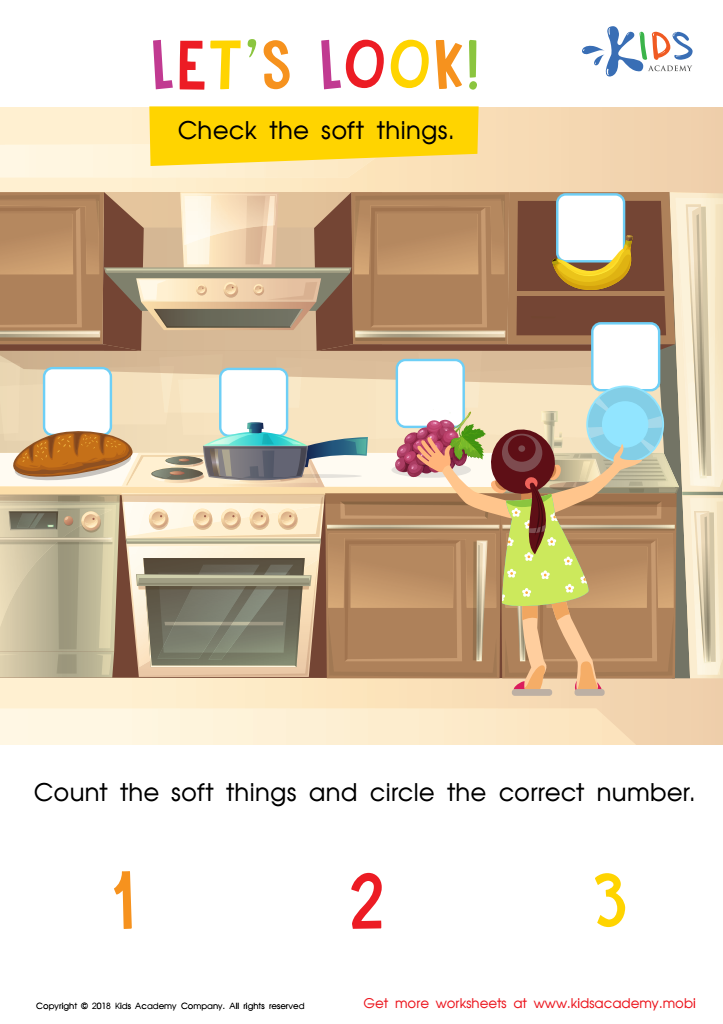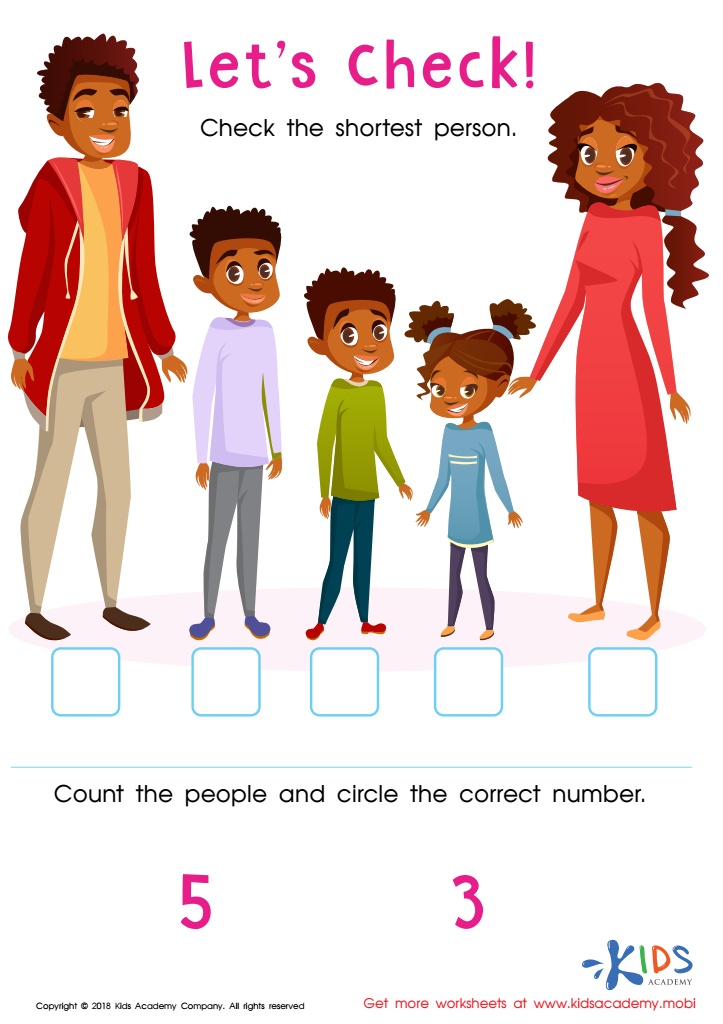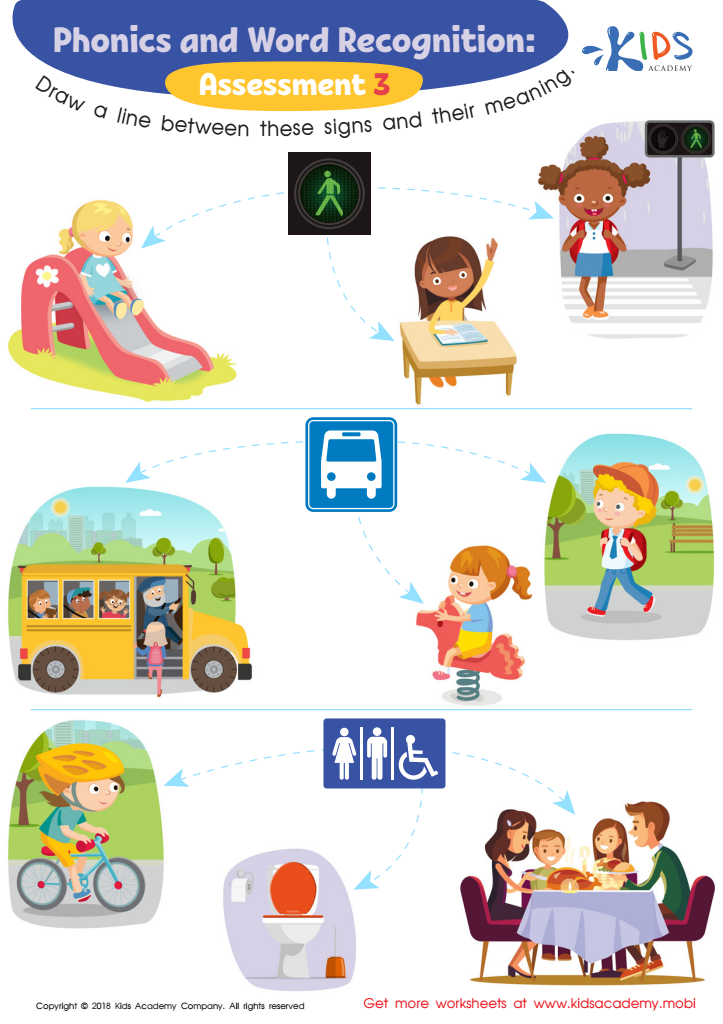Counting skills World Around Us Worksheets for Ages 5-8
5 filtered results
-
From - To
Developed for children ages 5-8, our "Counting Skills - World Around Us" worksheets bring a fun, interactive approach to mastering counting and math fundamentals. These engaging resources integrate captivating themes from the world around us, ensuring that children remain entertained while learning essential skills. Perfect for both classroom and home use, the worksheets stimulate curiosity and foster a love for numbers through a variety of creative exercises and activities. Help your child build a strong numerical foundation and enhance their counting abilities with our expertly designed, vibrant, and easy-to-use worksheets that make learning fun.


Robot Printable


African Wildlife: Giraffe Worksheet


Let's Look! Assessment Worksheet


Let's Check! Assessment Worksheet


Phonological Awareness: Assessment 3 ELA Worksheet
Counting skills are foundational for young children ages 5-8 as they play an essential role in cognitive development and academic success. At this stage, children are capable of grasping basic numerical concepts, and fostering these skills early can lead to a lifetime of mathematical confidence and competence. Numbers are a universal part of the world around us; from counting steps to identifying shapes, early math skills are integral to everyday experiences.
For parents, reinforcing counting skills can mean more than just better school performance. Daily activities such as cooking, shopping, or even playing can turn into educational opportunities, making math a fun and integrative part of a child’s life. This background in counting and understanding quantities helps children develop problem-solving skills, logical thinking, and spatial awareness.
For teachers, a strong emphasis on counting and numerical understanding in the classroom sets the stage for more advanced mathematical concepts. These skills assist children in recognizing patterns and understanding sequences, which further enhance reading and comprehension. More importantly, a firm grounding in counting lays the foundational principles necessary for subjects like arithmetic, measurement, and even science.
Thus, focusing on counting and numerical skills in the world around us isn't just about meeting educational standards; it’s about equipping young minds with skills they will use for a lifetime. It nurtures curiosity, enhances everyday problem-solving abilities, and builds a strong academic foundation.
 Assign to My Students
Assign to My Students






















